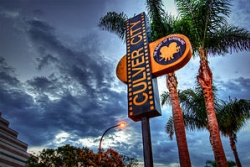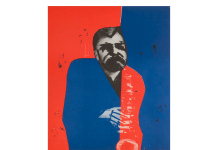But a proposed bill in the state Assembly has the potential to change that by shifting how the violations are adjudicated.
Assembly Bill 666, ominously named by its opponents the “Devil’s Bill,” would move cases involving red light camera violations to civil court instead of criminal court, where they are now heard.
Authored by Assemblyman Robert Wieckowski (D- Sacramento), the proposed legislation states that “the issuing agency shall not be required to produce any evidence other than the notice of automated violation or copy thereof, including the photograph of the vehicle’s license plate, and information received from the Department of Motor Vehicles identifying the registered owner of the vehicle.”
In Culver City, the presence of red light cameras has been a heated subject of debate among its citizens and its elected leaders. There are currently 20 operating cameras in the city, which were installed in 2000.
Robert Zirgulis, one of Culver City’s most outspoken red light camera opponents, says he cannot understand why the City Council has not spoken against the red light cameras, as some legislators have in other cities.
“This abomination, Assembly Bill 666, has nothing to due with safety but is a sorry attempt to extort money from car owners that were not even ‘guilty’ of running a red light,” accused Zirgulis, who made the elimination of red light enforcement cameras his main platform in a losing 2008 City Council race.
Culver City Police Lt. Ron Iizuka said it was premature to determine what affects AB 666 would have on how its traffic enforcement initiative is affected or its cases adjudicated.
“We haven’t had a chance to take a look at it,” Iizuka said. “It still hasn’t made it out of committee.”
Wieckowski’s bill would also make the registered owner of a vehicle responsible for infractions committed by other drivers of the owner’s car. Currently, the owner of the vehicle can appeal the ticket if they can prove that they were not driving the car at the time the citation was recorded.
“The registered owner of the vehicle shall be liable for payment of any civil penalty assessed for the automated violation if the registered owner is unable to identify the person who was the driver of the vehicle at the time of the automated violation,” AB 666 states.
The proposed legislation would also permit the Department of Motor Vehicles to deny anyone the ability to renew their vehicle registration if traffic citations from a red light enforcement camera had not been paid.
Another change in the current law would send camera enforcement violators to an administrative hearing instead of a court trial.
Steven Gourley, a former head of the state Department of Motor Vehicles, said the agency switched to administrative hearings for alleged drunken drivers because many defense attorneys obtained continuances for their clients, who were allowed to drive until there was a resolution to their case.
Gourely, a former Culver City councilman and Culver City Unified School District president, said the reason behind the proposed change is what is important. If the reason for the change to an administrative hearing is for the process to be more cost effective for all parties and for faster adjudications that might be worth considering he said.
“But if it’s purpose is to set it up in order to act as a rubber stamp for the agency, than that’s an awfully bad idea,” added Gourley, who is also an attorney.
In California, an administrative hearing takes place before any governmental agency or before an administrative law judge. Such hearings can range from simple arguments to what amounts to a trial. There is no jury, but the agency or the administrative law judge will make a ruling.
Opponents of the bill say it presumes the accused violator is guilty before the hearing. They also say that a defendant’s chances are harmed because the enforcement cameras cannot appear in court, while a motorist who is issued a similar traffic citation for running a red light has the right to confront the officer in court.
Proponents of traffic enforcement cameras say they have been a boon to law enforcement by reducing accidents. In a 2011 study, The Insurance Institute for Highway Safety claims that 159 lives in 14 were the cameras were installed were saved over a five –year period. The organization claims they reduced the rate of fatalities by from 2004 to 2008.
Opponents of red light camera have challenged the report’s research.
In several cities throughout California, the lights have been turned out on red light traffic cameras.
In February, San Diego became the latest city to turn off their red light cameras.
Nearly 30 California cities have decided in recent years to drop their red light camera enforcement programs, including Los Angeles, where the City Council disbanded its program in 2011.
One of the main reasons the council decided to terminate the use of the cameras, according to City Councilman Bill Rosendahl, was in part due to a decision in 2010 by the Los Angeles County Superior Court to not actively enforce violators to pay for the infractions.
Assemblywoman Holly Mitchell (D- Culver City) did not return calls for comment.













